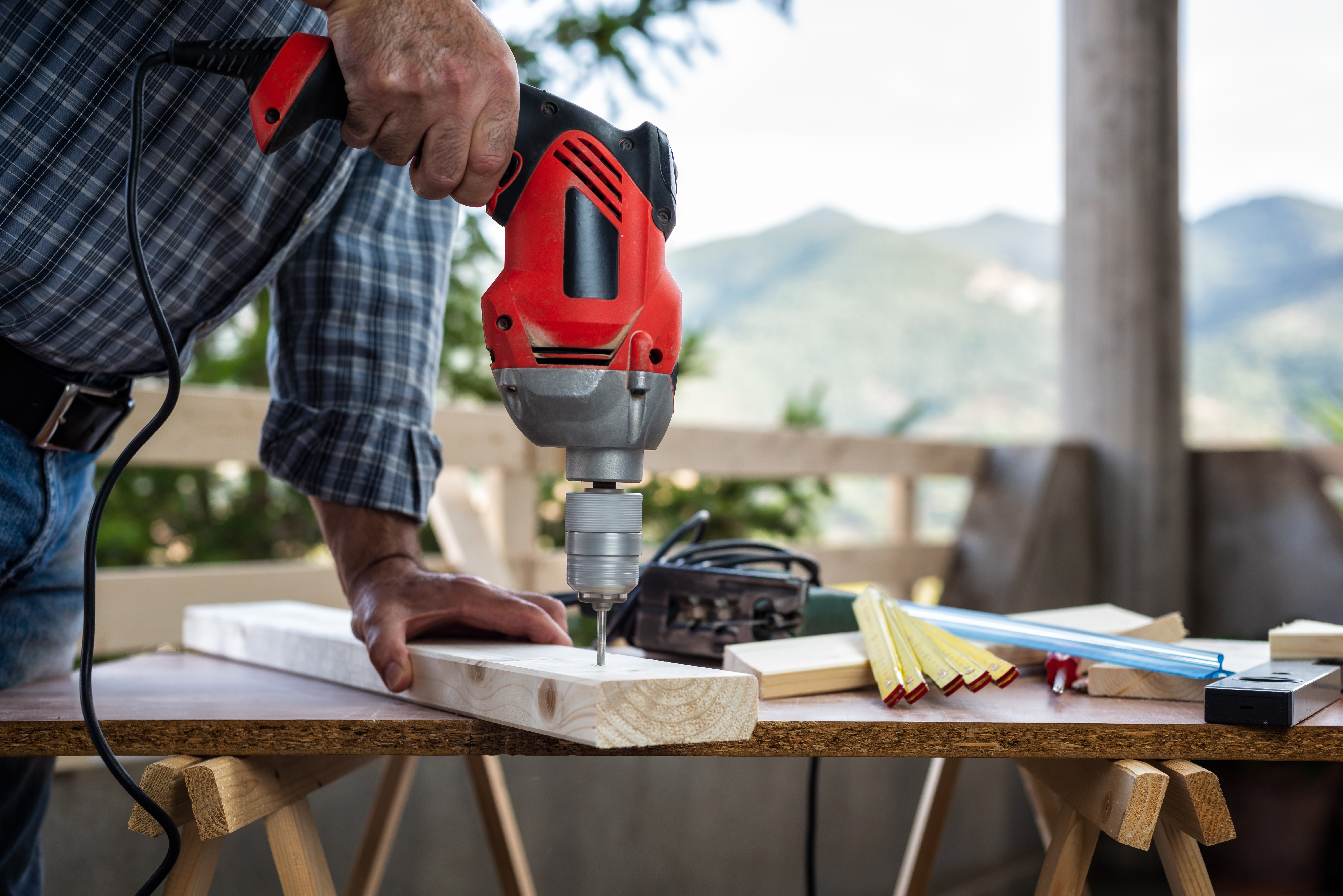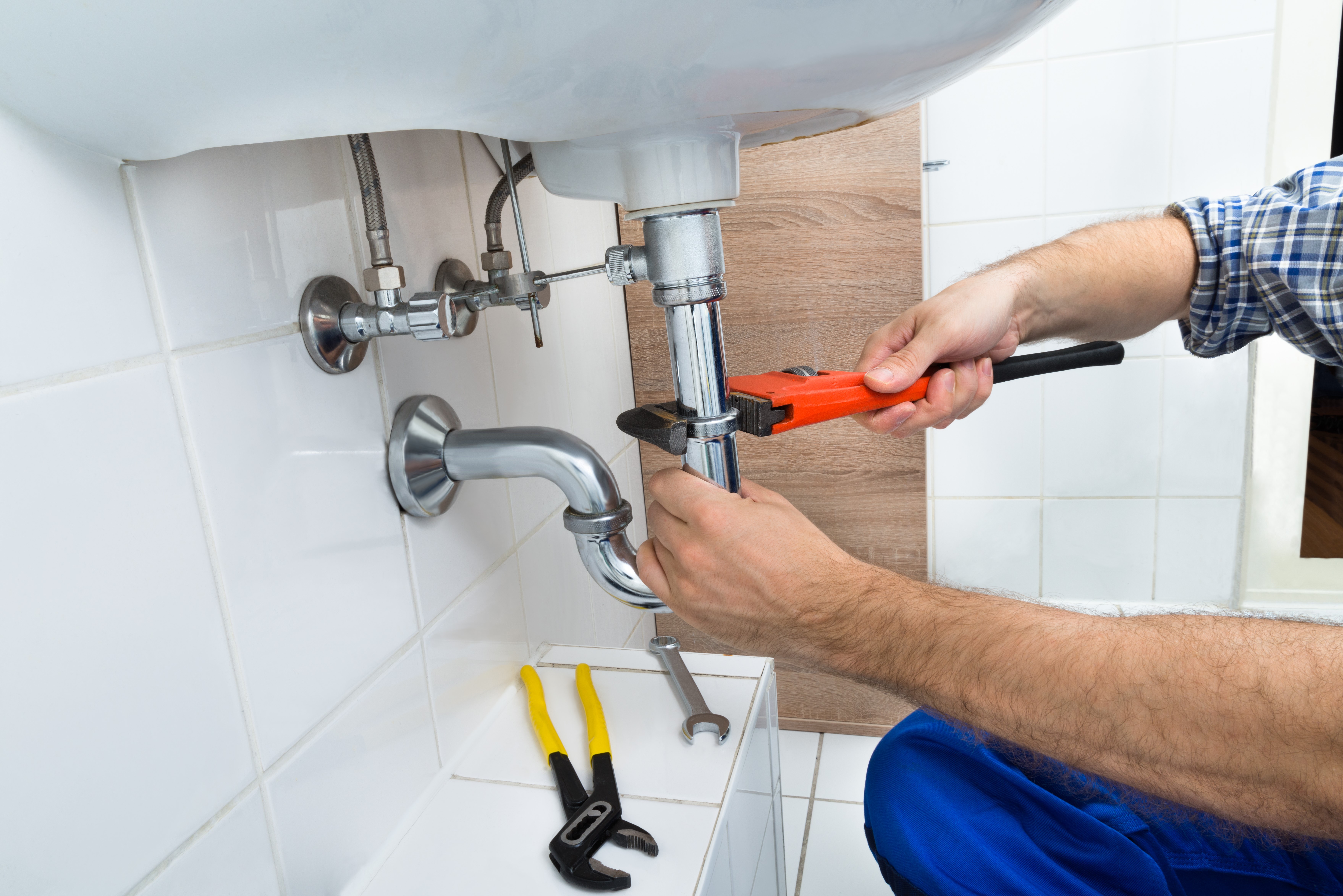How Much Does A Handyman Make?
What is the average handyman salary? Find out how much a handyman can expect to make in the United States, as well as the best ways to earn the best handyman hourly rate.

Handyman work can earn a decent living for those who pursue it. The average handyman salary is above many other skilled trades in most parts of the country, and there's potentially unlimited room for you to grow.
Are you looking for more handyman jobs in your area? Sign up for CraftJack today to start getting handyman leads.
What Is The Average Handyman Salary?
Working as a handyman can be a financially rewarding career for many people. According to the Bureau of Labor Statistics, the median annual handyman salary in the United States was $40,850 in 2020, or just under $20 an hour. This is close to the average handyman salary across all states and types of employment. In 2020, the highest-earning 10% of handymen earned more than $65,590 annually. This is equal to $32.80 an hour for top-level maintenance workers. Self-employed handymen and general contractors who offer handyman services aren't included in these numbers. Contractors who start their own business can generally charge a higher average handyman rate than professionals who work directly for an employer.
Becoming A Handyman
Becoming a handyman is achievable for many people, though it does take some time and effort. In most states, you must complete a basic educational requirement, then some on-the-job training, and finally take an exam to earn certification or licensing as an independent contractor. If you start your own contracting business, your state likely has additional licensing and insurance requirements for you to operate legally.
Education Requirements
The basic educational requirement for handymen in most states is a high school education. There's no penalty for having a college degree, but it's not usually needed. If you do opt into higher education before starting a career as a handyman, you can pursue a mix of practical training for a trade and some more specialized education. You might, for instance, take a handyman training course at your local community college while at the same time taking a few math and engineering classes to round out your skill set. Because a handyman works with so many different systems, it never hurts to have some grounding in plumbing, electrical systems, home appliances, and the chemistry of various cleansers, solvents, and other common chemicals.
OSHA-approved workplace safety and ADA-compliance training can also be extremely helpful for handymen, especially if you plan to work on commercial or large residential structures, such as apartment buildings. If you want to work independently, consider adding some classes on accounting, finance, and business law to help you successfully manage your small business in what is probably a very competitive field.
Training On The Job
On-the-job training is a common part of becoming a handyman. Many maintenance workers get their first exposure to the job through an apprenticeship program offered through a local contractor. Programs like these usually work like having a regular entry-level job as a handyman's helper, but with the trainee working under close supervision and with an emphasis on learning how each job is done. As time goes by, apprentice handymen learn more and more of the job skills they'll need, and the contractor sponsoring their training reports their hours worked and skills obtained for course credit.
It's not uncommon for a successful apprenticeship to lead to an offer of regular employment after the term has run. After one or two years, many apprentices shift over to full-time work as an employee of the company where they got their training and work with less direct supervision. Eventually, they earn the education and work credits to apply for state certification as handyman contractors or maintenance workers on their own.
Certification And Licensing
Most states impose some kind of certification and licensing requirements on handymen who work with the general public. The standards and requirements differ in each state, but in most places you have to complete a training requirement, pass a criminal background check, and take a written exam. In some states, such as Florida, contractors can opt into certification at the county level. The requirements for this are generally less demanding than state licensing, though a county certification is only valid in the county that issues it, and possibly in neighboring counties.
In addition to your certification as a handyman, you may have to get a business license to operate as an independent contractor in your state. This usually involves paying your state business tax and filing the required paperwork to establish your business in the area. Check with a local business attorney or your state's department of corporations for details about the exact requirements to operate in your area.

Finding Your First Handyman Job
While many apprentice handymen transition straight from training to their first job as contractors, some don't. The contractor you apprenticed with may not be able to transition you to full-time work, or you might have some classroom education to finish before you're ready to get back in the field. If any of these things happen in your training, at some point you have to look for your first job as a handyman. There are a couple of common paths maintenance professionals follow for this, mainly working for a commercial property or getting hired on at a handyman company.
Working Directly For A Property
Taking a maintenance job with a single property can be one of the most stable options for a new handyman. It's common for rental properties and large commercial complexes to hire a single full-time maintenance worker to keep things in good repair. Handymen doing this kind of work usually have a single job location to go to every day, and they often have a schedule of work orders available to them in advance so they know what the day's work calls for. Maintenance professionals working for a single property get to know the state of the buildings fairly well, and they may come to know the tenants on a first-name basis over the months and years they work there. If the property owner manages multiple sites, you may work at several locations in a week. This can be stressful, but it all but ensures a steady and diverse stream of work is available as you learn more about your trade.
Wages for this type of maintenance work vary and are largely a function of what the local market can bear for a professional with relatively little experience. Expect your handyman salary to be lower for this type of work than the self-employed handyman rate in the same area. While a lower-than-average pay scale may be a drawback for single-site handyman work, there's an upside. As a regular employee of a property manager, you may qualify for health and retirement benefits, and much of the cost and paperwork related to running a business is handled by the company you work for.
Independent Handyman Contractors
Working for a professional handyman business is another employment option for new maintenance workers. When you get hired on as a handyman with an existing maintenance company, you can count on steady work and all the benefits of regular employment. In addition to these positives, your pay is likely to be closer to the average handyman hourly rate than if you worked as an employee for a property manager. Getting this kind of job is much like applying for work anywhere. Expect to be asked to submit an application and resume, verify your training history, and provide a few professional and personal references before being hired.
Getting Started On Your Own As A Handyman
No matter how stable and satisfying your work is for others, sooner or later you'll be in position to try setting up your own handyman business. When you do this, it's important to follow certain steps to make sure your contracting business is set up to succeed from the start. As always, it can be extremely helpful to talk with a local small business consultant before getting started to develop a business plan, secure good financing terms, and set up a company structure that works best for you.
Set Up A Company
The first step to starting your own handyman business is to set up a company you can do business through. This process is similar for every small business. In most states, it requires a trip to the secretary of state's office or the state department of corporations, whichever entity handles business filings where you live.
When you set up your company, it's important to choose the right corporate structure. This has an effect on how you can raise money, how you pay taxes, and what your legal rights are if there's ever a lawsuit involving your business. As a handyman contractor, you basically have three options: sole proprietorship, limited liability, and limited partnership.
- Sole Proprietorship: In a sole proprietorship, you are the business. In an S-type structure, the money your company earns passes through and gets taxed as if it's your own personal income.
- Limited Liability Company (LLC): In an LLC, your company is a legal person that can own property, open a bank account, take out debt, and do all the other things a natural person can do.
- Limited Partnership: This is similar to an LLC except you have a limited partner who helps you secure financing. As a rule, your partner doesn't manage the business, but they may take a share of the profits.
Get Financing
Once your company is set up, you can get financing. The most common way to do this is to ask a bank or the Small Business Administration for a business loan. Be ready to present a business plan and some collateral before the loan is approved. Once you have funding, you can buy a work vehicle and the tools you need.
Start Looking For Leads
The last and most important thing you need to get started as a handyman is a good supply of leads. Most handymen work from client to client and need a regular flow of new business to keep busy. Working with the professionals at CraftJack can keep you in contact with promising leads in your area and help you thrive from the first day you're in business.



